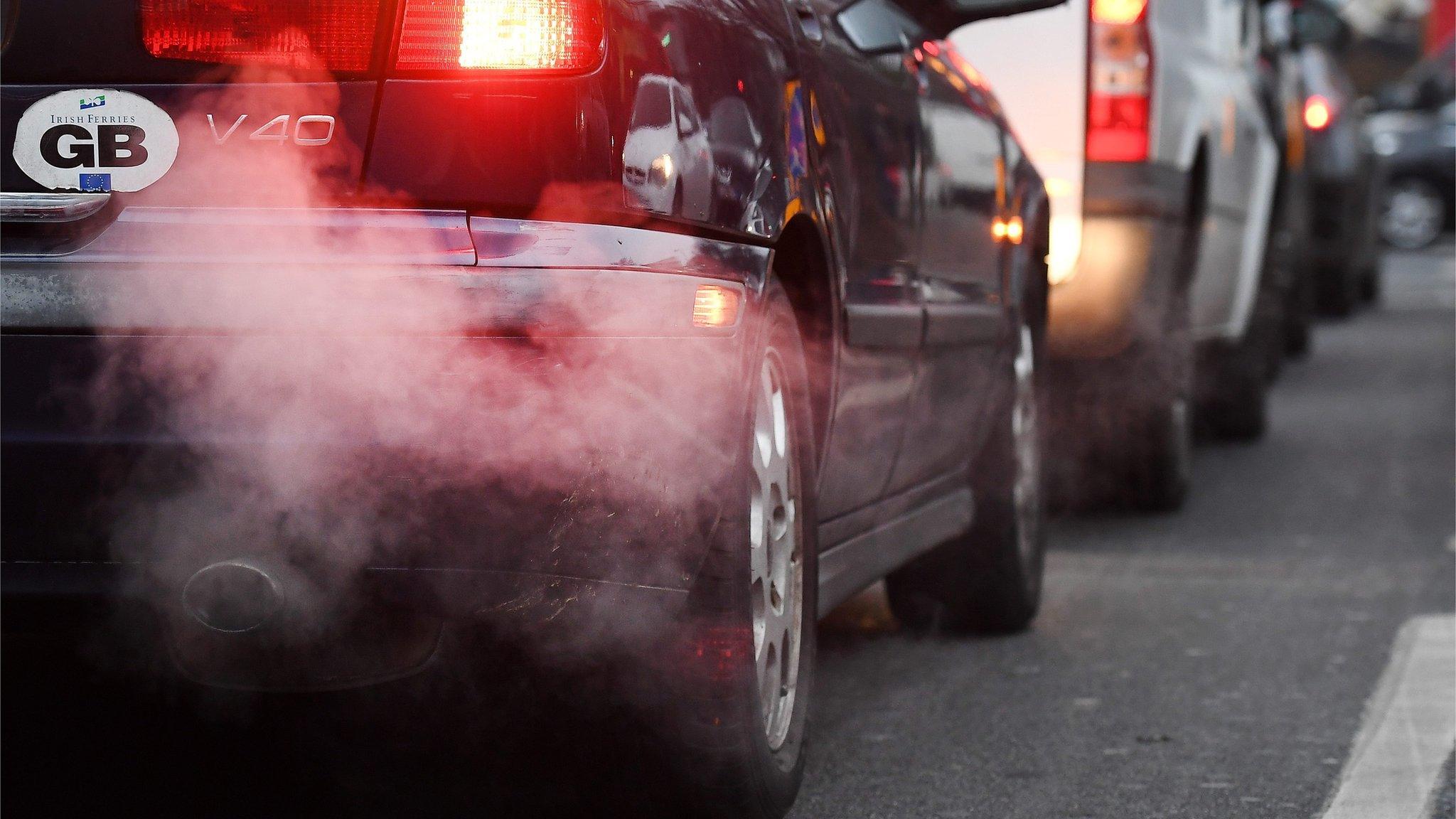On the road electric style
- Published
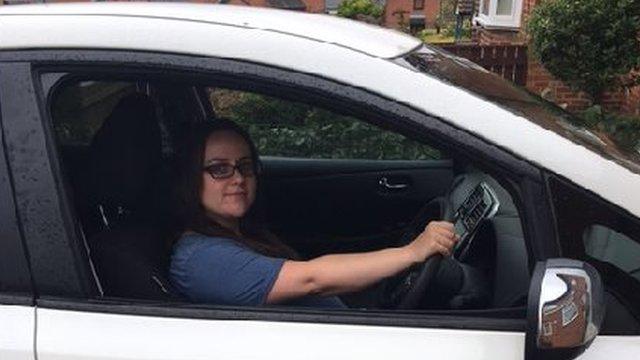
The future is electric
The government says it will ban new petrol and diesel cars from 2040 as part of its clean air strategy, external - but as they gradually disappear from our roads, how will we manage using electric vehicles on a day to day basis?
Rachael Crooks, a housing association worker who lives in Brotton, North Yorkshire, has already embraced electric technology.
She currently uses her Nissan Leaf to commute to work in Middlesbrough.
The town has outdoor chargers at a local supermarket as well as council car parks.
However, as Mrs Crooks points out: "You have to register to use the system and need to carry heavy cables with you.
"As I'm currently eight months pregnant, that's not such a good idea".
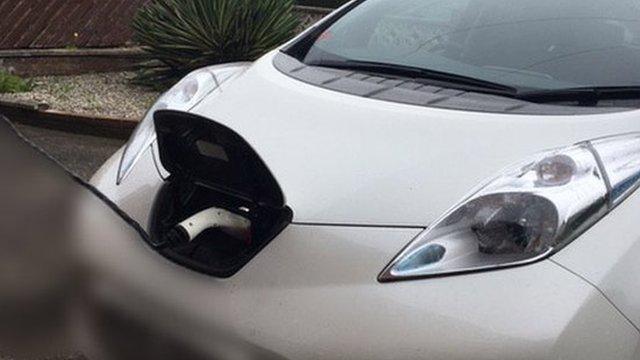
The car can be charged on the driveway
The ex-demonstration car was bought just under a year ago, and Mrs Crooks can travel about 80-100 miles on full charge.
Charging takes about four hours and can be done at the Crooks' home, which has an external power point.
Running costs come to £5 to £10 per month, although Mrs Crooks's husband, Kyle, also has a petrol car, which they use for longer journeys.
Mrs Crooks admits: "My husband wasn't originally keen on the idea of an electric vehicle but changed his mind once he saw how economical it was."
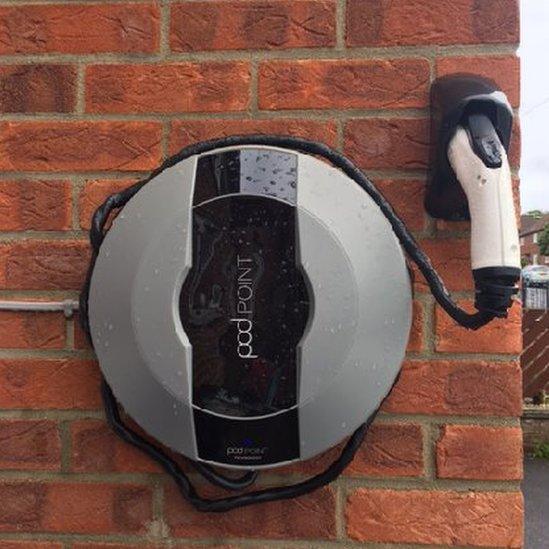
The couple have set up their own charging point at home
The couple's home also has solar panels generating energy that in turn goes to a converter in the attic.
This links to an electric board, and any energy that is not used is sold back to the National Grid.
Mrs Crooks feels that the government's plan to ban new petrol and diesel cars is a good idea.
She says: "It's the way ahead and won't seem so strange once the ban comes into effect.
"I decided to have an electric car as it provided value for money and also to save the environment."
By Bernadette McCague, UGC and Social News team
- Published26 July 2017
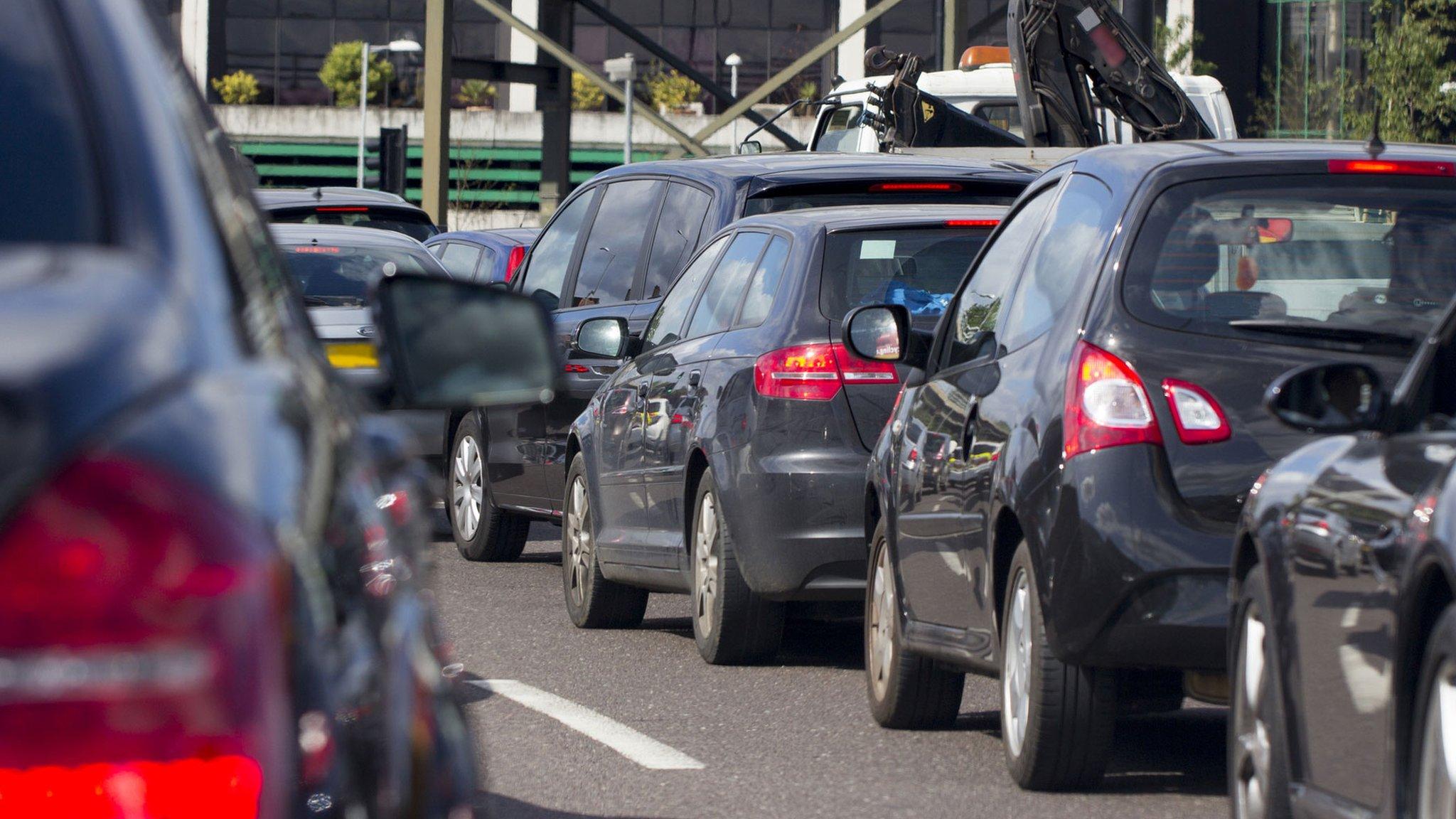
- Published4 February 2020
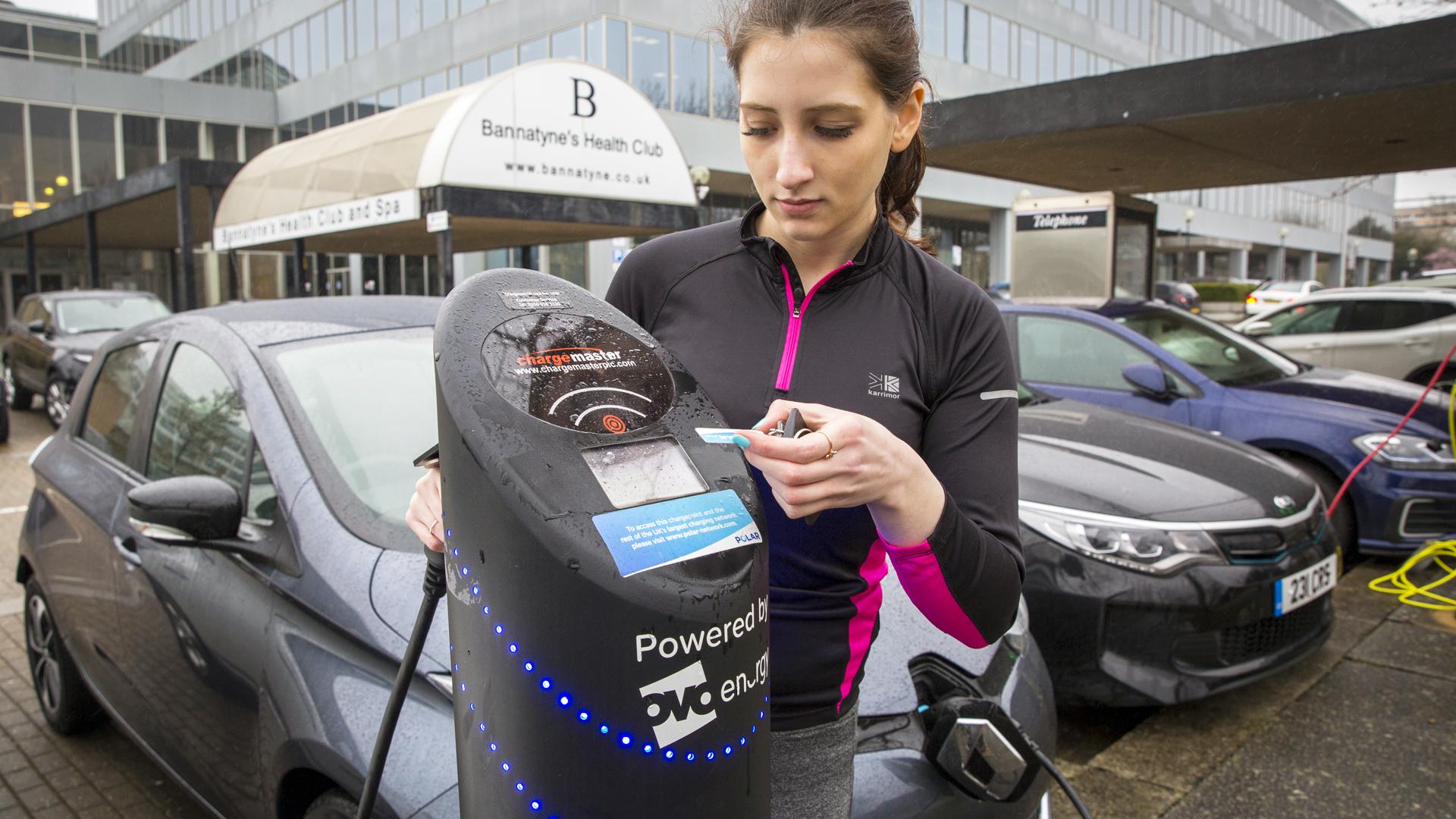
- Published6 March 2017
